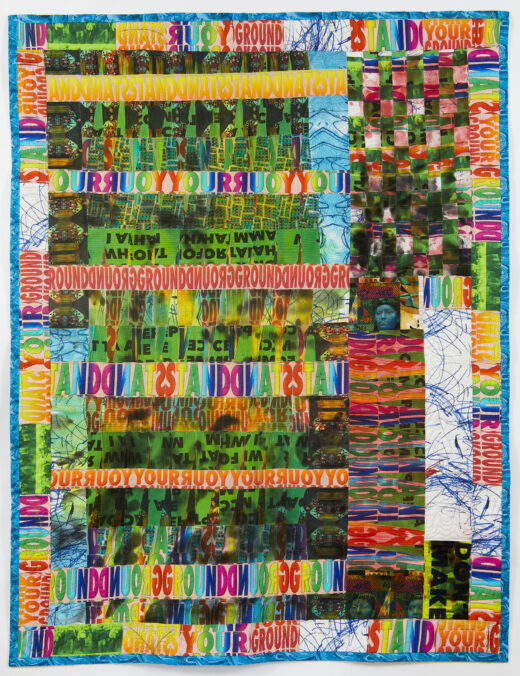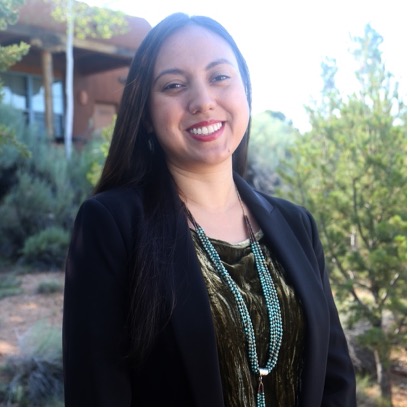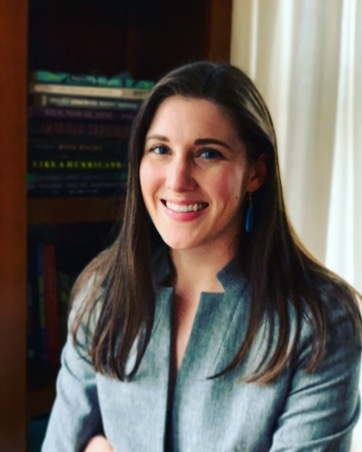Thinking Toward a Relational Future

In concert with University of Chicago’s faculty; the Center for the Study of Race, Politics, and Culture; the Film Studies Center; and the Department of Cinema and Media Studies, along with the D’Arcy McNickle Center for American Indian and Indigenous Studies at the Newberry Library; the Center for Native American and Indigenous Research at Northwestern University; participating artists; and others, the Smart Museum is excited to present Relational Futures: A Symposium for Indigenous Land, Water, and Environment on October 7–9, 2021 in association with Toward Common Cause.
Bringing together Indigenous scholars, activists, and policymakers from the Indigenous Southwest to the Indigenous Midwest, the symposium offers a platform for dialogue around Indigenous environmental advocacy and research in the context of enduring legacies of toxic exposure, resource extraction, and global public health crisis. Below, we have highlighted the voices of two of the people playing an instrumental role in the event as they discuss its significance.

Teresa Montoya
Provost’s Postdoctoral Fellow & Assistant Professor, Department of Anthropology, The University of Chicago
The D’Arcy McNickle Center at the Newberry Library already has an established reputation for supporting Indigenous scholarship and archival research that will amplify the artistic and social justice collaborations showcased in Toward Common Cause. Building upon the central theme of “commons,” Relational Futures invites us to question: for whom have environments been protected, conserved, or honored? We hope that Relational Futures provides the important and often overlooked context of Indigenous knowledge as a crucial foundation for any collaborative undertaking, especially here in Chicago.
As a Diné scholar working to understand the nexus of environmental contamination and settler colonial land policies on the Navajo Nation, I’m excited to draw new connections between Indigenous struggles and approaches to environmental justice in the Indigenous Midwest with the Indigenous Southwest. These are not merely methodological or disciplinary concerns; they are crucial to our flourishing in an epoch of catastrophic climate change.
In this era of climate deterioration, surging economic inequality, and ongoing global pandemic, it is vital to build and imagine more sustainable relationships with our environments, one another, and our other-than-human kin. This begins by understanding where we live, who was here before us and still lives here, and how we can be better relatives to each other now and moving forward. I hope Relational Futures will provide a platform of connection to build upon for future collaborations.

Rose Miron
Director of the D’Arcy McNickle Center for American Indian and Indigenous Studies
When planning programs, we often design our content for either scholarly or public audiences. Relational Futures is unique because from the start, we were interested in both of those audiences and were especially committed to centering the voices of Native community members. I’m thrilled that the panels we’ve organized include a mix of Native scholars and non-academics and believe this diversity of perspectives will lead to rich conversations across the event.
Partnering with the Smart Museum and others involved in Toward Common Cause enables us to tap into larger conversations taking place about our shared responsibilities and relationships with land, water, and the environment. We hope our event will foreground the importance of Indigenous voices in conversations about ownership of and access to resources, emphasizing the ongoing occupation of Indigenous lands and exploitation of Native resources. This event will speak back to the common erasure of Indigenous voices in conversations about climate change and environmental justice.
Climate change and the environment are urgent topics that we must discuss as a society, but Indigenous people and nations continue to be erased from these conversations. Our Relational Futures event focuses on a pertinent topic that is important to many but re-centers Indigenous voices and futures. I hope the event is useful to our Native participants and audience members who are eager to share ideas and resources for fighting colonial, environmental exploitation. At the same time, I hope the event will educate wider audiences about the importance of Indigenous voices in this movement and the histories of colonialism that have shaped our present environmental crises.
Relational Futures: A Symposium for Indigenous Land, Water, and Environment will take place from October 7–9, 2021. Find out more and register. This event is free and open to the public.